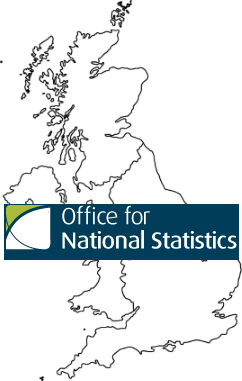The latest quarterly report on migration from the Office for National Statistics (ONS) shows that net migration to the UK has risen to 298,000.
You can read the report, which covers the year ending September 2014, here.
The ONS lists the following key figures from the report:
 • Net long-term migration to the UK was estimated to be 298,000 in the year ending September 2014, a statistically significant increase from 210,000 in the previous 12 months, but below the peak of 320,000 in the year ending June 2005.
• Net long-term migration to the UK was estimated to be 298,000 in the year ending September 2014, a statistically significant increase from 210,000 in the previous 12 months, but below the peak of 320,000 in the year ending June 2005.
• 624,000 people immigrated to the UK in the year ending September 2014, a statistically significant increase from 530,000 in the previous 12 months. There were statistically significant increases for immigration of non-EU citizens (up 49,000 to 292,000) and EU (non-British) citizens (up 43,000 to 251,000). Immigration of British citizens increased by 4,000 to 82,000, but this change was not statistically significant.
• An estimated 327,000 people emigrated from the UK in the year ending September 2014. Overall emigration levels have been relatively stable since 2010.
• 271,000 people immigrated for work in the year ending September 2014, a statistically significant increase of 54,000 compared with a year earlier. This continues the rise since the year ending June 2012. The increase over the past year applied to both non-EU and EU (non-British) citizens, as well as British citizens. However, only the increase for non-EU citizens was statistically significant.
• Latest employment statistics show estimated employment of EU nationals (excluding British) living in the UK was 269,000 higher in October to December 2014 compared with a year earlier. Over the same period, British nationals in employment also increased (by 375,000) while non-EU nationals in employment fell by 29,000.
• In the year ending September 2014, work-related visas granted (main applicants) rose 8,833 (or 8%) to 115,680, largely reflecting a 6,142 (or 14%) increase for skilled work.
• National Insurance number (NINo) registrations to adult overseas nationals increased by 24% to 768,000 in the year ending December 2014, when compared with the previous year.
• 37,000 Romanian and Bulgarian (EU2) citizens immigrated to the UK in the year ending September 2014, a statistically significant increase from 24,000 in the previous 12 months. Of these, 27,000 were coming for work, a rise of 10,000 on year ending September 2013, but this increase itself was not statistically significant.
• Immigration for study increased from 175,000 to 192,000 in the year ending September 2014, but this change was not statistically significant. Over the same period, visa applications to study at a UK university (main applicants) rose 2% to 171,065.
• The number of immigrants arriving to accompany or join others showed a statistically significant increase, from 66,000 to 90,000 in the year ending September 2014.
• There were 24,914 asylum applications (main applicants) in 2014, an increase of 6% compared with 23,584 in 2013, but low relative to the peak of 84,132 in 2002. The largest number of asylum applications in 2014 came from Eritrea (3,239), Pakistan (2,711), Syria (2,081) and Iran (2,011).
BBC News notes that the net migration figure is now well above the level when David Cameron came to power in 2010, despite Conservative aims to get it to below 100,000 by this May.
Meanwhile, a new research report by Dr John Jerrim of the UCL Institute of Education has examined the qualifications and numeracy skills of emigrants and compared them with those of immigrants and UK-born people who have remained in this country.
You can read the 101-page research report here.
According to a UCL Institute of Education news article, the research found that, during the period being studied, 684,000 highly numerate individuals left and they were replaced by an almost equal number of very numerate immigrants, predominantly from Europe and South Asia.
However, the research also found that immigration has also added 2.4 million individuals with low numeracy skills to the UK population.
"Although immigration from South Asia has added many highly numerate people to our labour force, immigration from the same region and Africa has added six times more people with low numeracy skills to the UK than those with high numeracy skills," Dr John Jerrim is quoted as saying.